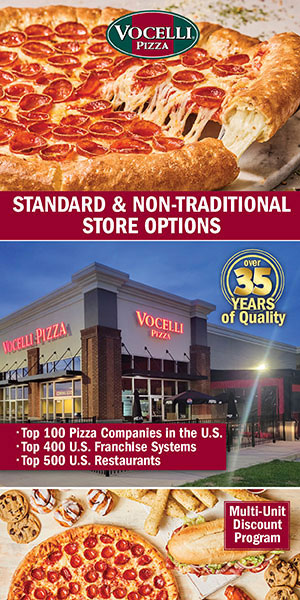Franchise Litigation: Can You Pass this Quiz?
Like it or not, litigation comes to virtually all franchise systems. Take a moment to see how savvy you are on franchise litigation issues based on real-world cases.
1. A California hotel franchisee has repeatedly breached the franchise agreement and receives numerous cure notices. A final cure notice is sent out and the franchisee does not cure. The franchisor files suit, but then learns that it sent its final cure notice to the wrong address. Is the franchisor:
- liable for wrongful termination?
- on solid ground?
- in danger of a cease and desist order?
- not in jeopardy, but must send a new cure notice?
2. A franchisor advises its franchisees to make several changes to improve security at their locations, but does not follow up on the suggested changes. After the employee of a franchisee is assaulted, she sues the franchisor. Does she have a viable claim?
- No, because the franchisee controls the location.
- No, because suit would be barred by workers' compensation laws.
- Yes.
3. In 1999, a sub shop franchisor required its franchisees to purchase their supplies from a just-formed affiliated company. The affiliate was not mentioned in Item 8 of the disclosure document. Several Michigan franchisees brought suit under the Michigan Franchise Investment Law. Which franchisees had viable claims against the franchisor?
- Just those who were already franchisees in 1999.
- All of them.
- None of them.
- Just those who became franchisees after 1999.
4. A California franchisee convinces the franchisor to knock $2,500 off the $20,000 franchise fee. The franchisor agrees but takes no further action after the transaction. Is the franchisor:
- in deep trouble and vulnerable to having franchise sales cut off?
- in line for a possible slap on the wrist and a reprimand?
- in good shape except for being $2,500 poorer?
5. Suppose a franchisor starts off with five approved suppliers, but then decides to make itself the sole supplier to franchisees. Do the franchisees have tying claims?
- No.
- Yes, under the Kodak case.
- Depends on disclosures.
6. A hotel franchisor is acquired by a larger hotel company. Soon after, the acquiring company's frequent guest reward program is adopted as a system-wide standard for all of the acquired franchisor's franchisees. The franchise agreement does not mention a frequent guest reward program. Was this lawful?
- No. It was a breach of the franchise agreement.
- Yes.
7. One hamburger chain ran a very successful promotional game that was rigged by a promoter. When a franchisee for a rival chain sues the competing chain for false advertising, can he collect damages?
- Yes.
- No, because the rival chain did not know that the contest had been rigged.
- No.
8. A popular seafood restaurant in Oregon had been founded more than 50 years ago and had expanded to more than 6 locations, all in Oregon. Its website sold its famous chowder on a nationwide basis. Can it stop a newer Mexican franchise system in Atlanta from using its name?
- Yes. It was there first and does business nationwide.
- Only if the Oregon restaurant was registered on the USPTO.
- No.
9. The officers of a franchisor exchange instant messages calling a difficult franchisee a "jerk." Must these instant messages be produced in a subsequent lawsuit filed by the franchisee?
- No. They are privileged communications.
- No, because instant messages are not preserved.
- No. These are part of the legal defense of the case.
- Yes.
10. You learn that every time someone types your name into a search engine, the person is prompted to consider your biggest competitor. When you sue the search engine, do you:
- lose, because of the search engine's terms of use?
- lose, because the search engine has done nothing more than what a drug store does when it places a generic product next to a branded one?
- win?
- All of the above.
Answers
- (b)- See Ramada v. Kouza, where this actually occurred. By Statute, no further cure notice was needed after multiple breaches.
- (c)- In Martin v. McDonald's, the court held that once McDonald's had voluntarily undertaken obligations regarding security it had to exercise reasonable care on follow up.
- (d)- Tubby's #14 v. Tubby's Sub Shops held that only those who became franchisees after 1999 had claims because the statue applies only to prospective purchasers.
- (a)- After a California franchisor reduced a franchise fee by $2,500, the Commissioner of Corporations issued a Cease and Desist Order terminating the right to sell franchises in California, seeking rescission of all California franchise agreements, substantial damages, attorney's fees and penalties, because the negotiated change violated California Law.
- All Three may be Correct. Although most cases have found no claim, the recent Burda v. Wendy's Int'l, Inc. decision allowed such claims to proceed, though a new motion to dismiss was just filed by Wendy's on June 16, 2010.
- (b)- Yes. Doubletree v. Custom House, arbitrators concluded that Hilton could impose its frequent guest reward program as a system standard after acquiring Doubletree.
- (c)- No. The franchise lacked standing to sue. Phoenix of Broward v. McDonald's.
- (c)- No. In Newport Pacific v. Moe's Southwest Grill a "close case," the court found that the Oregon restaurant's was not sufficiently famous to block the use bye the Mexican Chain.
- (d)- Yes. Instant messages can be preserved and do not meet the definition of a "document" that must be produced.
- (d)- All of the Above. See RescueCom Corp. v. Google, Inc.
Scoring
1-3 right, you are an unlucky guesser, considering two questions had no wrong answer;
4-6 right makes you a franchise pro;
7-10 right makes you a franchise expert.
Jonathan Solish is a certified franchise specialist and a partner in Bryan Cave's Santa Monica, Calif., office. Bryan Cave's franchise group has five California Board Certified franchise specialists. Solish has been a trial lawyer for 35 years and handles cases all over the country on behalf of franchisors. He has published scores of articles, several chapters, and a book on franchise legal issues, including a chapter on franchise trials written with Michael Dady to be published later this year by the ABA. He will be speaking on litigation issues in franchising at the ABA Annual Legal Symposium in San Diego in October.
Share this Feature
Recommended Reading:
| ADVERTISE | SPONSORED CONTENT |
FRANCHISE TOPICS
- Multi-Unit Franchising
- Get Started in Franchising
- Franchise Growth
- Franchise Operations
- Open New Units
- Franchise Leadership
- Franchise Marketing
- Technology
- Franchise Law
- Franchise Awards
- Franchise Rankings
- Franchise Trends
- Franchise Development
- Featured Franchise Stories
| ADVERTISE | SPONSORED CONTENT |








 The franchise listed above are not related to or endorsed by Franchise Update or Franchise Update Media Group. We are not engaged in, supporting, or endorsing any specific franchise, business opportunity, company or individual. No statement in this site is to be construed as a recommendation. We encourage prospective franchise buyers to perform extensive due diligence when considering a franchise opportunity.
The franchise listed above are not related to or endorsed by Franchise Update or Franchise Update Media Group. We are not engaged in, supporting, or endorsing any specific franchise, business opportunity, company or individual. No statement in this site is to be construed as a recommendation. We encourage prospective franchise buyers to perform extensive due diligence when considering a franchise opportunity.